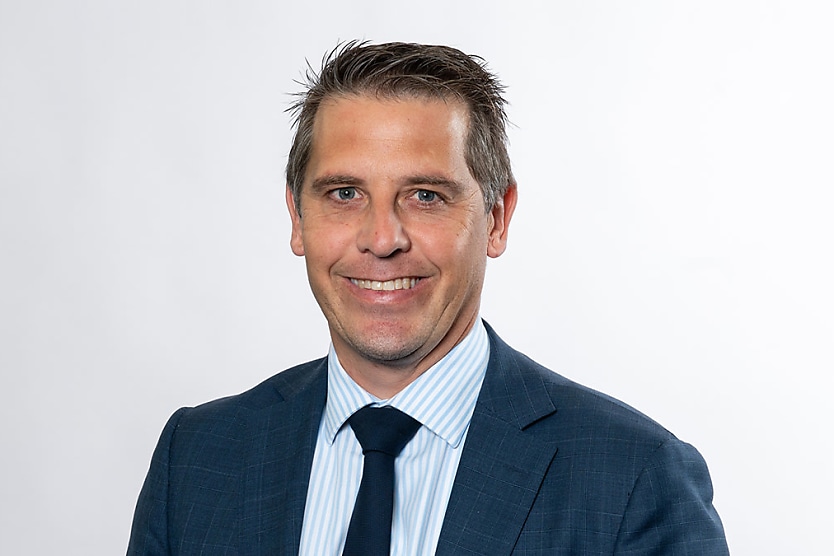
Starting today (8 April), doctors across public hospitals throughout NSW will be committing to three days of rolling industrial action over pay disputes.
Thousands of doctors across the NSW public health system will be striking over the next three days due to the collapse of pay negotiations between the Australian Salaried Medical Officers Federation (ASMOF) and the NSW government.
Speaking at a press conference yesterday (7 April), Ryan Park, NSW Minister for Health, and acting secretary Matthew Daly said the planned industrial action would “harm patients.”
"I’m not going to stand here and have the community think for one moment that thousands of doctors can be taken offline, out of the public health system in New South Wales, and patient safety won’t be impacted or won’t be at risk. I can assure you it will be,” Minister Park said.
"During the industrial action taken by nurses, we saw literally hundreds of surgeries canceled each day. In fact, we had some point where 700 surgeries were canceled in a single day. So the likely impact of this action over a three-day period is significant."
“This strike will harm patients, and I will not sugarcoat that reality."
Pay negotiations fell apart after the state government walked away from the negotiation table, refusing to entertain the union’s bargaining. The union is requesting a 30 per cent increase, without specifying a time period, whilst the Minns government has offered 10.5 per cent over three years.
Park argued that the government cannot account for such a large increase, considering other workforces such as nurses and midwives are also seeking a large collective increase as they also turned down a 10.5 per cent increase over three years.
According to Park, the requests by the union are not reasonable.
"The union’s pay increase demand would cost $11 billion over the forward estimates. We can’t make up for over 10 years of wage suppression under the former government’s wages cap in a single year by offering some of the highest-paid healthcare workers in the system a 30% increase. That is not reasonable.”
ASMOF spokesperson Dr Nick Spooner noted that the ministry’s behaviour since the abandonment of the negotiations had now reached a “deeply troubling point.”
“We have seen NSW Health make broad and alarming claims about unsafe staffing over nights and public holidays, yet they have failed to provide the Union with any evidence or detail – despite formal requests,” Spooner said.
“We are the only ones in this crisis putting patient safety first. We are doing this to protect the public health system, the same system this Government seems willing to let fall apart.”
“The Premier can still end this today. He just needs to come back to the negotiating table.”
The ASMOF have accused the NSW government of spreading information around the industrial action, whilst raising concerns over emails from the union being deleted from NSW Health servers, making it harder to communicate with members, including about government-raised safety concerns.
“This is completely inappropriate and puts the safety of doctors and patients at risk. We are actively trying to share critical information with our members, including the Ministry’s own concerns, and Health is stopping those messages from getting through,” Spooner said.
When Daly was quizzed on these claims by the union, he said: “I could not think of a word other than nonsense” to describe the claims, while also claiming that the union has failed to communicate with the government on what their plans for the strike are, so the government can adapt accordingly.
"The advice we’ve received has been haphazard, to be kind ... We’ve been pleading with the union to provide us with precise details of the staffing that will be provided so that we can make a judgment call as to the level of risk ... We’ve been pleading for that information since last week.”
“It’s still not coming through ... That makes it exceptionally difficult to mitigate risk if we are not going to be transparent as to the medical resources that will be available on the field,” Daly said.
Both sides continue to disagree on the direct effect that the industrial action will have on the health and wellbeing of the NSW community, with the union having said the government could put in routine procedures that would allow for the usual flow of patients to be seen and cared for without disruption.
“It would not be unreasonable to cancel non-essential services and engage alternative workforce coverage where needed, such as VMOs and locums, which is standard practice during any public holiday.”
“If NSW Health can identify specific gaps in coverage, ASMOF will act to direct our members to work where patient safety is at risk. But what we cannot accept is a blanket assertion of system-wide staffing failures with no evidence,” Spooner said.
Minister Park called on the union to return to the negotiation table to mitigate the risks.
“We’ve been pleading with the union to provide precise details of staffing coverage. Without that information, it’s impossible to mitigate risks. This action seems like a want, not a need."
Spooner said NSW Health should immediately stop the misinformation and implement the standard public holiday staffing arrangements for the three-day strike.
“It would not be unreasonable to cancel non-essential services and engage alternative workforce coverage where needed, such as VMOs and locums, which is standard practice during any public holiday.
“If NSW Health can identify specific gaps in coverage, ASMOF will act to direct our members to work where patient safety is at risk. But what we cannot accept is a blanket assertion of system- wide staffing failures with no evidence.”
RELATED TERMS
Industrial relations is the management and evaluation of the interactions between employers, workers, and representative organisations like unions.
Kace O'Neill
Kace O'Neill is a Graduate Journalist for HR Leader. Kace studied Media Communications and Maori studies at the University of Otago, he has a passion for sports and storytelling.










